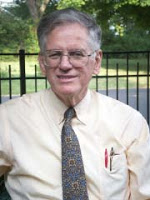Neuroscience


- Super Week Round-up
We hope you enjoyed our Super Week special feature that ran all last week to complement the Super-themed special issue of The Psychologist magazine. Each day we met a person with an extreme ability or a researcher investigating such an ability. Here's...
- The Special Issue Spotter
We trawl the world's journals so you don't have to: What makes for a Good Life? International and interdisciplinary perspectives (Journal of Positive Psychology). Uncertainty and Risk in Everyday Life (Health, Risk and Society). The Experience...
- Do You Love Humanity?
"I love humanity but I hate people"Edna St. Vincent Millay (American poet and playwright). Psychology hasn't paid enough attention to the regard people have towards humanity - their "humanity-esteem". That's according to Michelle Luke and Gregory...
- Human Rights Day
Human Rights Day 2007 marks the start of a year-long commemoration of the 60th anniversary of the Universal Declaration of Human Rights. The Universal Declaration of Human Rights: 1948-2008 It is our duty to ensure that these rights are a living reality...
- Learning Why We Learn: A Call To Action For All Undergraduates
Last month, I attended the CSRES Symposium "Wonder and the Natural World", and I had a chance to listen to a speech by Dr. Richard Gunderman, Professor of Liberal Arts at the IU School of Medicine. (He actually completed an MD-PhD in Philosophy, and...
Neuroscience
Day 3 of Digest Super Week: meet the super-humane professor

I am super humane
Gandhi once said, "All humanity is one undivided and indivisible family." Studies of those who risked their lives to rescue Jews during the Holocaust found they shared Gandhi’s deep sense of the "oneness with all humanity." That oneness transcended their sense of oneness with members of one’s nationality, race, or religion.
For reasons my self-examination does not reveal, I have agreed with Gandhi’s sentiment, both intellectually and emotionally, since late childhood. Reared in luxury, I am certainly not a Gandhi, and can only guess whether I would have had the courage of the rescuers.
Still, I think my life has shown this "oneness with all humanity." At age 14, my parents sent me to a military school, where I quickly declared myself a conscientious objector. I somehow knew it morally wrong to let your nation decide for you if and when it is right to kill fellow human beings. I was hazed for that unpopular view, but also gained the respect of more thoughtful faculty and students. Although living in the South, I was a firm supporter of desegregation in the 50s and a frequent civil rights marcher and anti-war activist in the 60s. In all of these, my sense of our common humanity anchored my decisions and actions.
Today my causes are humanitarian and human rights. I have long supported Amnesty International, and give lots of money to Oxfam, Human Rights Watch and similar organisations. These organisations are the main recipients in my will. Also, I now co-chair the Education Committee for Human Rights Coalition of the American Association for the Advancement of Science.
As a professor, I developed a course on human rights, which I still teach in retirement, and am now writing a textbook on human rights. My research has focused on understanding racism and war, and their opposite, "identification with all humanity," which I wrote a questionnaire to measure. Two questions read, "How often do you use the word 'we' to refer to people all over the world?" and "When they are in need, how much do you want to help people all over the world?" If asked these questions, my answers would be "very often" to the first and "very much" to the second, the highest response options.
Sam McFarland is Professor Emeritus at Western Kentucky University, where he still teaches and writes on human rights. He has served as president of the International Society of Political Psychology.
--Further reading--

In 2012, Professor McFarland and his colleagues devised a scale for measuring people's identification with all of humanity - a development we covered here on the Digest blog. Among their findings, high scorers on the scale tended to value Afghan and American lives more equally, and tended to know more about humanitarian issues.
Also in this month's Psychologist, Tom Farsides investigates super-altruism - whether there is such a thing, and its potential costs.
Tomorrow we hear from a researcher studying "super-tasters".
- Super Week Round-up
We hope you enjoyed our Super Week special feature that ran all last week to complement the Super-themed special issue of The Psychologist magazine. Each day we met a person with an extreme ability or a researcher investigating such an ability. Here's...
- The Special Issue Spotter
We trawl the world's journals so you don't have to: What makes for a Good Life? International and interdisciplinary perspectives (Journal of Positive Psychology). Uncertainty and Risk in Everyday Life (Health, Risk and Society). The Experience...
- Do You Love Humanity?
"I love humanity but I hate people"Edna St. Vincent Millay (American poet and playwright). Psychology hasn't paid enough attention to the regard people have towards humanity - their "humanity-esteem". That's according to Michelle Luke and Gregory...
- Human Rights Day
Human Rights Day 2007 marks the start of a year-long commemoration of the 60th anniversary of the Universal Declaration of Human Rights. The Universal Declaration of Human Rights: 1948-2008 It is our duty to ensure that these rights are a living reality...
- Learning Why We Learn: A Call To Action For All Undergraduates
Last month, I attended the CSRES Symposium "Wonder and the Natural World", and I had a chance to listen to a speech by Dr. Richard Gunderman, Professor of Liberal Arts at the IU School of Medicine. (He actually completed an MD-PhD in Philosophy, and...
